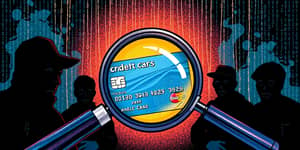
Credit cards often carry a bad reputation, but when wielded responsibly, they can become powerful allies in your journey toward financial freedom. By embracing shape better spending habits and leveraging the industry’s best features, you can transform plastic into a tool for growth rather than a source of stress.
In this comprehensive guide, we’ll explore strategies to track spending, earn rewards, protect your credit, and avoid common pitfalls. Whether you’re a seasoned cardholder or just starting out, these insights will empower you to make informed decisions and create lasting financial habits.
At its core, a credit card is more than just a payment method—it’s a gateway to enhanced financial literacy. By learning the mechanics of interest rates, billing cycles, and reward structures, you build a foundation for all future financial decisions. Recognizing a card as a tool for empowerment rather than a source of debt shifts your mindset toward long-term stability.
Financial literacy isn’t optional; it’s essential. When you understand terms like APR, credit utilization, and grace periods, you gain the confidence to make choices that align with your goals. This knowledge transforms monthly statements from daunting bills into monthly audit of transactions that guide smarter budgeting.
One of the most valuable features of modern cards is built-in expense tracking. Many issuers categorize purchases automatically—groceries, dining, travel—so you can see exactly where your money goes. This level of detail illuminates spending patterns and uncovers opportunities for savings.
Once you spot high-cost areas—such as frequent takeout orders—you can implement targeted changes. For example, meal prepping at home could save hundreds each month. By turning awareness into action, you make your card a partner in crafting a realistic, sustainable budget.
Rewards programs are where savvy cardholders truly differentiate themselves. From straightforward cash back to travel miles and flexible points, the right card can return a slice of your spending back to you.
To maximize your rewards potential, align card categories with your lifestyle. If you travel frequently, a miles card could unlock free flights and lounge access. If you’re a homebody, a high cash-back rate on groceries might be more valuable.
When planning a significant expense—like electronics, furniture, or a major renovation—look for cards offering zero or low interest rates during an introductory period. These promotions, often lasting 12–24 months, allow you to spread out payments interest-free, preserving cash flow while still unlocking reward earnings.
Be sure to pay off the full balance before the promotional period ends. Doing so converts what might have been an expensive loan into a risk-free, reward-generating purchase plan.
Your credit score opens doors to lower rates on mortgages, car loans, and insurance. Two critical factors influence it: utilization and payment history. Aim to keep your utilization under credit utilization below 30% of your limit, and always pay on time to build a positive payment history.
For those with limited or damaged credit, secured cards require a refundable deposit and often report to credit bureaus. Over time, responsible use can repair and strengthen your profile, qualifying you for more lucrative, unsecured cards.
Credit cards offer robust safeguards against fraud and unauthorized charges. Most issuers provide zero liability for fraudulent transactions, making them safer than cash or debit. Regularly review statements and enable mobile alerts to catch suspicious activity early.
Many cards also include purchase protection: extended warranties, return guarantees, and price-drop refunds if an item’s price falls soon after purchase. These perks can save you both money and headaches when things don’t go as planned.
Buzzwords like rewards and sign-up bonuses can blur the risks. High interest rates (often 15%–25% APR) and hidden fees can quickly overshadow benefits if you carry a balance or trigger penalty charges.
By staying vigilant and reading the fine print, you keep the power in your hands and prevent credit from becoming a burden.
Ultimately, credit cards excel as financial tools when integrated into a broader, disciplined plan. Treat your card like a checkbook: spend only what you’ve budgeted and can repay in full each month. This habit preserves your reward gains and protects your credit health.
By following these guidelines, you transform credit from a potential liability into a strategic advantage. Each swipe becomes an opportunity to earn, learn, and advance your financial future.
Embrace these strategies today to take control of your spending, build your credit profile, and unlock the rewards you deserve. Smart credit card use isn’t just about plastic—it’s about empowerment, planning, and the freedom to achieve your goals with confidence.
References













